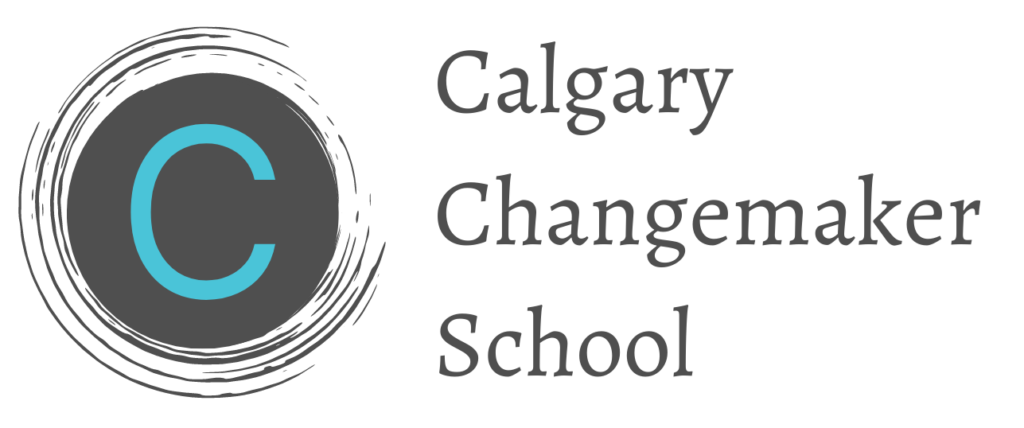 The Calgary Changemakers in Education Society supports school choice in Alberta and we enjoy helping families find the ‘best-fit’ school or school system for their child and family! We encourage everyone to do their own research but we recognize that it can be hard to decipher all of the options available to Albertan families. There also seems to be a lot of misinformation regarding school choice in Alberta. We are always happy to share our personal experiences and understandings.
The Calgary Changemakers in Education Society supports school choice in Alberta and we enjoy helping families find the ‘best-fit’ school or school system for their child and family! We encourage everyone to do their own research but we recognize that it can be hard to decipher all of the options available to Albertan families. There also seems to be a lot of misinformation regarding school choice in Alberta. We are always happy to share our personal experiences and understandings.School Choice in Alberta, A Summary:
-
Public
Designated neighbourhood schools are assigned to families based on where you live and are fully funded by the government through taxpayer dollars. A network of neighbourhood public schools are operated by large school boards such as Calgary Board of Education (CBE) or Rocky View Schools. There is a secular emphasis in neighbourhood public schools and students from all faiths, backgrounds, abilities and needs are accepted (as long as they have an address within the designated area boundaries). Public schools may charge fees for supplies, certain activities and field trips and often organize school fundraisers throughout the year, but public schools are not allowed to charge tuition. Some public schools offer speciality programs such as French immersion or fully online programs. More information can be found at: https://www.alberta.ca/albertas-k-12-education-system.aspx
-
Public Separate (Catholic)
Catholic public schools in Alberta belong to a system called the ‘separate board’. The separate board is a network of schools operated by a large Catholic school board such as the Calgary Catholic Board. The student or one parent is typically required to have a Catholic baptismal certificate for acceptance but, if there is space, the separate board will also accept some non-Catholic students (up to the discretion of the individual schools). Like neighbourhood public schools, public Catholic schools are fully funded by the Province and can’t charge tuition but may charge fees for supplies, certain activities and field trips and often organize school fundraisers throughout the year. More information regarding Calgary’s Catholic (separate) schools is available at: https://www.cssd.ab.ca/about
-
Charter
Charter schools are stand-alone specialty schools that are adopted by the government and are often considered to be a part of the public system. In order to become a government-funded public charter school, the founding individual or group would have had to write a charter and go through an application process proving that there was a need for the school’s particular specialty that the regular neighbourhood schools were not currently offering. Charter schools are operated by an independent board of directors appointed or elected by the school community and/or the original founders of the school. Charter schools are open to all but are allowed to have an application process and select their students based on being a good fit with their charter’s mission (ie. an all-girls school accepts only those who are girls, the arts academy requires an audition or artist portfolio, and students applying the gifted charter school must meet the school’s gifted criteria and submit a psych-ed assessment). As there are often more qualified applicants than available spaces in many charter schools in Alberta, there can be lengthy waitlists or lottery systems in place. Charter schools are considered to be fully funded by the Province and are not allowed to charge tuition. Charter schools usually charge fees for uniforms, supplies, activities and field trips and often organize school fundraisers throughout the year. More information regarding charter schools is available at: https://www.alberta.ca/charter-schools.aspx
-
Homeschooling
Home education is a parent-directed approach to educating a student in Grades 1 to 12 at home (or elsewhere) in which the parents are responsible for making most educational decisions. All homeschooling students in Alberta must be registered with a homeschooling board or a willing supervising public or private school. Homeschooling can be unfunded or partially-funded, with some funds going directly to the family and other funds going to the supervising homeschool board. Depending on the homeschool board or school, homeschoolers may have access to some teacher-directed classes and activities either online or in-person. Blend-Ed or blended programs can be found in some public and private schools and combines part-time parent-led homeschooling with part-time teacher-led schooling either in-person or online. Fully parent-led homeschooling leaves reporting, assessment, curriculum, scheduling of activities and programming up to the parent with varying levels of support and monitoring by the supervising homeschool board. Unschooling, de-schooling and world-schooling are untraditional styles of homeschooling that have gained popularity in recent years and reject the idea of their children having to conform to standard educational models. There are many faith-based and secular homeschool boards who both typically welcome students of all faiths, backgrounds and needs. More information regarding homeschooling is available at: https://homeschoolcanada.ca/homeschooling-by-province/alberta/– -
Private/Independent
In Alberta, private and independent schools are the same: stand-alone specialty schools in the independent system. Individual founders, special needs groups and/or faith-based groups use personal funds, time and resources to start a school of choice. They must operate without any Provincial funding for their startup year plus one full operational year. If choosing to be accredited by Alberta Education (required in order to be eligible to apply for partial-funding after the first year of operation), many steps, interviews, and ongoing monitoring and audits must take place. Any Provincial funds received after being accredited must be used for specific purposes and are never allowed to be used for capital costs or to purchase or rent facilities.
- Independent/private schools fall under two major categories:
- A) Registered private (no government funding, low monitoring, low regulations).
- B) Accredited private (after first year are eligible for partial funding from the government with audits, monitoring and regulations).
- Independent/private schools fall under two major categories:
- Both unfunded and partially-funded independent schools need to charge tuition and fundraise heavily to pay for basic operational costs, staffing and enrichment. Typically, significant fundraising in excess of tuition is especially important in their first few years. School facilities, maintenance and capital expenditures are not funded by the government and is covered by school tuition, fees and fundraising. Often these schools work hard to fundraise for bursary programs and will try to offer financial aid programs for lower income families when possible.
- Independent/private schools are allowed to independently interview and select their best-fit students at the start of each year based on spaces available, staffing and resources. Once a student is accepted, independent schools are responsible for providing an education to that student for the remainder of the school year but are not obligated to accept them the following year.
- Notably, 96% of private/independent schools in Alberta choose to be inclusive to the extent that they are able, embracing diversity as well as providing supports for those with neurodifferences and special needs.
- Independent/private schools can be faith-focused, special-needs focused, language-focused, passion-focused (sports, fine arts, trades-focused, outdoor education etc.), or academic focused.
- Private/independent schools must be governed by a Not-For-Profit Organization and its Board of directors, of which at least 50% are parents with students attending the school. For-profit schools are not permitted in Alberta.
-
Designated Special Needs Schools (receive higher levels of funding from the government but must cater to a specific special needs population and 100% of students accepted must demonstrate that they have that particular special need).
- Heritage Language Schools (receive higher levels of funding from the government but must cater to a specific heritage language and culture).
-
ECS/Kindergarten (can be unfunded, partially-funded or fully funded stand-alone early learning programs or can be connected to an independent grade school).
